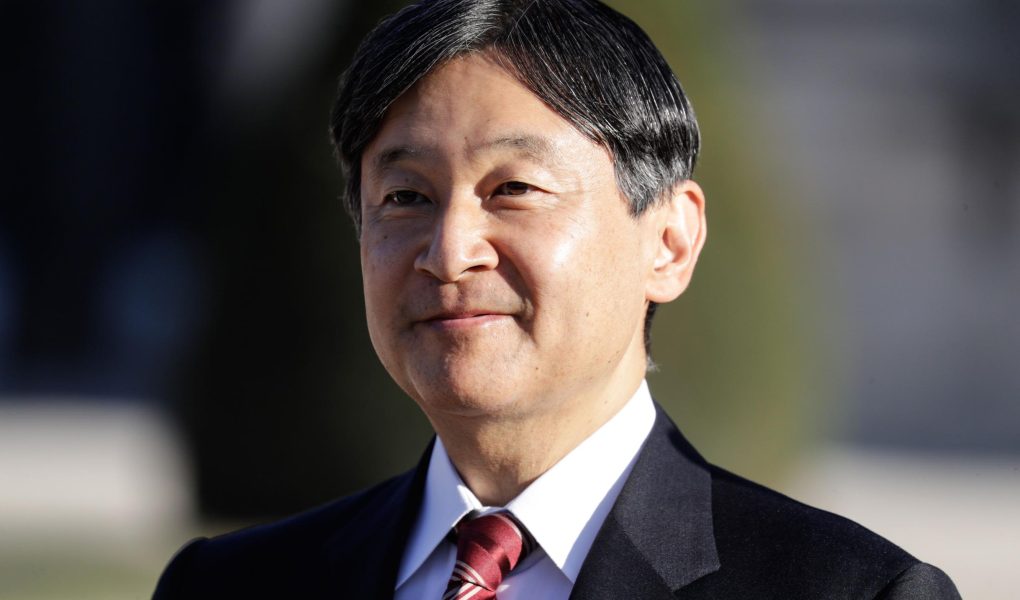iwillnotbebroken.org – Emperor Naruhito, born on February 23, 1960, is the 126th Emperor of Japan, ascending the Chrysanthemum Throne in 2019. His reign, known as the “Reiwa” era, marks a new chapter in Japanese history, following the abdication of his father, Emperor Akihito, who became the first Japanese Emperor to abdicate in over two centuries. Naruhito’s accession was the result of significant historical and constitutional change, as Japan navigated its post-war transformation while maintaining its deep cultural traditions.
Early Life and Education
Naruhito was born into the Japanese imperial family as the eldest son of Emperor Akihito and Empress Michiko. His early years were marked by a privileged upbringing, often in the public eye, as is customary for members of the royal family. Naruhito was educated in Japan, attending the prestigious Gakushuin Primary School and later studying at Gakushuin University. His academic interests ranged from history to the sciences, reflecting his broad intellectual curiosity.
As a young man, Naruhito pursued higher education abroad, studying at the University of Oxford in the United Kingdom. There, he focused on history and developed a deep interest in European medieval water transportation. His time in England exposed him to Western culture and helped shape his outlook on the world, emphasizing the importance of international relations and historical awareness.
Marriage and Family
Emperor Naruhito’s marriage to Masako Owada in 1993 was a significant moment in the history of the Japanese imperial family. Masako, a former diplomat, was the first commoner to marry into the imperial family in more than a century. The couple’s union marked a shift in royal traditions, and their relationship was closely watched by both the Japanese public and the international community.
Masako’s role as an empress has been fraught with challenges, including intense public scrutiny and struggles with health issues, particularly related to the pressures placed on her within the royal family. Despite these difficulties, the couple has remained devoted to their duties, with Masako gradually taking on more ceremonial responsibilities.
Emperor Naruhito and Empress Masako have one daughter, Aiko, Princess Toshi, who was born in 2001. As the only child of the Emperor and Empress, Aiko has been at the center of discussions about Japan’s imperial succession laws, which, until recently, did not allow for women to inherit the throne. This issue has sparked ongoing debate in Japan about gender equality and the future of the imperial family.
The Reiwa Era
Emperor Naruhito’s ascension to the throne in May 2019 marked the beginning of the “Reiwa” era, a term chosen to reflect a vision of harmony and peace. The name “Reiwa” was selected for its symbolism of a peaceful world and the importance of harmony in society. This era began with Emperor Naruhito’s official enthronement, which was celebrated with elaborate ceremonies and attended by dignitaries from around the world.
The transition from the Heisei era, which spanned the reign of his father, Emperor Akihito, was particularly significant as it was the first imperial abdication in modern history. Emperor Akihito’s decision to step down due to his advanced age and declining health raised questions about the future of the monarchy and the responsibilities of Japan’s emperor in the 21st century.
Emperor Naruhito’s reign continues to reflect Japan’s commitment to modernity while honoring its historical traditions. As Emperor, he plays a largely symbolic role, with Japan’s constitution limiting the powers of the emperor to ceremonial and representative duties. However, his role remains crucial in the fabric of Japanese society, embodying the continuity of the nation’s history and culture.
International Diplomacy and Advocacy
One of the key aspects of Emperor Naruhito’s reign has been his commitment to fostering international diplomacy and peace. Drawing on his academic background and global experiences, he has emphasized the importance of cross-cultural understanding. This has been reflected in his participation in various diplomatic events and his efforts to strengthen Japan’s ties with countries around the world.
As an advocate for water conservation and environmental awareness, Emperor Naruhito has also focused on issues such as climate change, sustainable development, and the preservation of natural resources. His background in water transport history has influenced his understanding of water’s critical role in society, making him a vocal proponent of efforts to tackle water-related challenges.
Challenges and Future Outlook
While Emperor Naruhito’s role is largely ceremonial, Japan’s monarchy still faces significant challenges. The most pressing of these is the issue of succession. With no male heirs, the question of whether Japan will revise its imperial laws to allow for a female emperor remains a topic of debate. The current law limits succession to male heirs only, but this has been questioned due to the declining number of eligible male members in the imperial family.
Additionally, Emperor Naruhito’s reign will likely be defined by the continued evolution of Japan’s relationship with the world, especially as the country faces geopolitical challenges in the region and beyond. His leadership will undoubtedly be pivotal as Japan navigates the complexities of modern diplomacy, economic growth, and the ongoing dialogue between tradition and innovation.
Conclusion
Emperor Naruhito’s reign represents both continuity and change for Japan. As the 126th Emperor, he is part of a long and storied lineage that has shaped the nation’s history for over a millennium. However, his approach to governance and diplomacy reflects a modern, globally conscious vision for Japan’s role in the world. As Japan faces new challenges in the 21st century, Emperor Naruhito’s leadership will continue to be an important symbol of national unity, tradition, and forward-looking aspirations.

